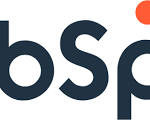
Prototype usability testing on Adobe XD designs is a crucial step in ensuring the effectiveness and user-friendliness of digital products. Adobe XD stands out as a popular tool in the digital design realm, offering a range of features within the Creative Cloud for developing digital experiences.
Users can create interactive prototypes that look and feel like real websites and apps using Adobe XD. This helps designers communicate their vision to team members and ensures everyone is on the same page. But prototyping is only the starting point.
Test your prototypes with real users to see how powerful they can be. A critical part of the UX design process and UX research prototype usability testing so you can understand your designs and UX research before developing them. You can conduct prototype usability testing on Adobe XD designs early on in the UX design process to identify potential problems that could become costly later on. You can also assess how users will interact with your designs. Leveraging real-time data and insights generated by early and frequent testing can also help teams make better decisions.
Prototype usability testing
In the dynamic realm of UX design, prototype usability testing serves as a cornerstone for refining digital experiences. The essence of this testing lies in garnering accurate feedback and data from users. However, achieving this precision entails a nuanced approach to task creation, considering the inherent complexities of testing incomplete designs and user interfaces.
Read More: web hosting
Importance of prototype usability testing
Prototyping is a crucial step in the design process. This means that prototype usability testing is also essential. During design, it gives you a good idea of how the user experience will be. It will allow you to correct mistakes on the back-end and save time and money for your team before the design goes into production.
We recommend drafting your usability test in a way that users can easily navigate it since prototype usability testing features work with your design at an incomplete stage. It doesn’t matter if the prototype is high loyalty or not. To achieve the best results, you have to carefully craft your tasks.
There are some tips for writing prototype usability testing tasks.
Quick tips for prototype usability testing tasks
There are some tips to ensure that your prototype usability testing tasks are suitable for the situation:
Clear expectations
Your users need to know what to expect. To understand the context for this design, first, define the test scenario. You can also inform users that there may be broken links or limited functionality at this stage. Users will be able to directly provide feedback on other elements of the user experience.
The users can focus on the early stage elements you may need to address before moving on during the test if they come into the test with the understanding that the website or mobile app is still under construction.
Focus on information and layouts
You need to focus on the visuals, information shared, and layout of the interface when creating tasks for a prototype usability test. Tasks involving these elements are pointless since some links and buttons may not be functional. It would be worthwhile to ask users to assess where things are placed or to demonstrate what path they might take through a page.
Next, find out where they see the workflow as intuitive. You can also ask them if the design conveys enough information about the brand, product, or experience. This will allow you to determine which content the users would find helpful.
Also, ask the users how they feel about the visuals in general. Visual elements like color schemes, font sizes, and image placement can be questioned. It will help you evaluate whether or not your user interface is accessible. The contrast between text and color may need to be greater, or the font may need to be larger.
Query about realistic questions
During the prototype usability testing process, it’s important to set up tasks for your users to complete because a prototype is part of the early-stage design process. A user should not be clicking dead links or judging navigation that you have not fully developed. In the test time, it is more efficient to examine what’s available for users to explore.
Advise users through the prototype usability testing workflow
You should guide users through the prototype workflow so that they can test and provide feedback since parts might be inaccessible. You don’t want to be overbearing in your guidance, but you can include specific elements to work on. Depending on whether they are active, you can also direct them to specific links or buttons. As long as they are aware that this is a rough draft, their comments on the user experience should be relatively straightforward.
Get general feedback
Getting overall feedback on the design is the key to prototype usability testing. The question should be one that users can answer by sharing their reflections, views, and suggestions.
Above are some tips for the prototype usability testing task. In the next section, we will discuss prototype usability testing on Adobe XD designs.
Prototype usability testing on Adobe XD
You can now integrate user testing directly into your design workflow by creating tests right on your artboard, testing prototypes you have created on Adobe XD, and collecting actionable user feedback.
How to start prototype usability testing with Adobe XD
Before anything else, make sure that you have successfully installed your Adobe XD environment or plugin. Alternatively, click on “New prototype” in your workspace’s library, locate the Adobe XD section, and select “Get plugin.”
Now you can start prototype usability testing
Directly through Adobe XD, you can now get started on the user testing process quickly and with a clear flow.
However, you can also use Adobe XD plugins for prototype usability testing on XD.
Adobe XD plugins
Adobe XD has a collection of prototype usability testing plugins designed to help you test out prototypes and gain insights.
Prototype usability testing with TryMyUI
TryMyUI has an Adobe XD plugin which allows you to seamlessly create and test digital products that address customers’ needs. With the TryMyUI plugin, you can test and collect feedback.
Customer demand
Throughout the design and development process, it’s critical to collect user feedback to ensure that products meet customers’ needs. It is possible to obtain this detailed information from your users during the discovery phase of product development to quickly learn, improve, and resolve issues before going live. You can fix a prototype much easier than a live product later, and you save time and energy!
Customer feedback
Getting feedback from the customer is quick and very simple with this tool. Using the TryMyUI Adobe XD plugin, you can also test and learn what your customers need to build a product that meets their needs.
Trends
UX measurement, rapid iteration, and data-driven decision-making are the three trends that appear to influence business performance above average. Product firms often waste their time and effort by making poor decisions, resulting in missed opportunities.
Adobe XD plugin allows you to gather helpful user feedback
The TryMyUI usability testing plugin allows you to create and launch remote, task-based user tests of your Adobe XD prototypes. Choose your target audience, write your tasks and questions, and TryMyUI recruits matching users to record themselves trying out your prototype and narrating what they like and don’t like. You will get screen-recording videos of testers using your prototype with live audio narration, follow-up survey responses, and auxiliary quantitative data. When you sign up through the TryMyUI plugin, your first test (with up to 5 users) comes free.
There are three very quick steps to get up and running:
Log in for a free trial
Sign up for a free trial within the Adobe XD Plugins panel.
Generate an unmoderated usability test
Make sure you provide your participant with a scenario and that you specify and generate a list of reasonable tasks for them to complete. Make sure to have a specific goal for them to achieve. This is an excellent way to determine whether users end up where you think they will.
Launch
Verify that everything is ready to go within Adobe XD, and then launch the test!
Conclusion
As a final note, I strongly recommend spending time gathering and curating quality data during usability testing to increase trust among team members and gain buy-in for hiring resources during the next research sprint. You can effectively advocate for the needs of your users with one or a few well-used free tools or even with a few paid tools.








